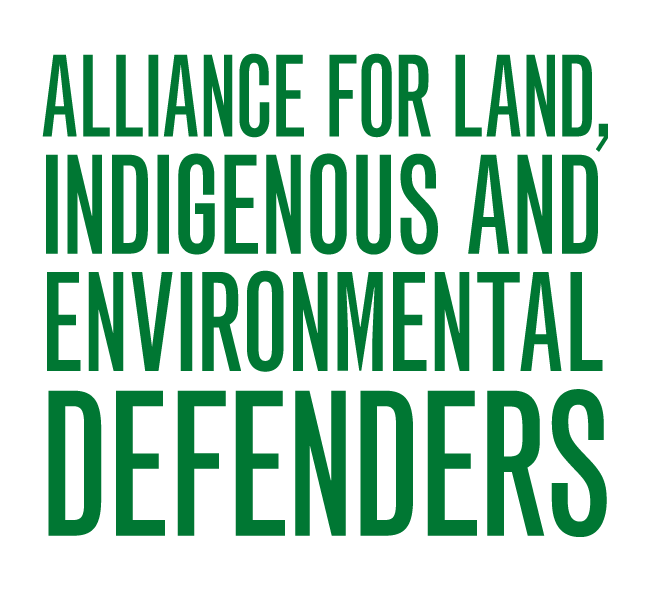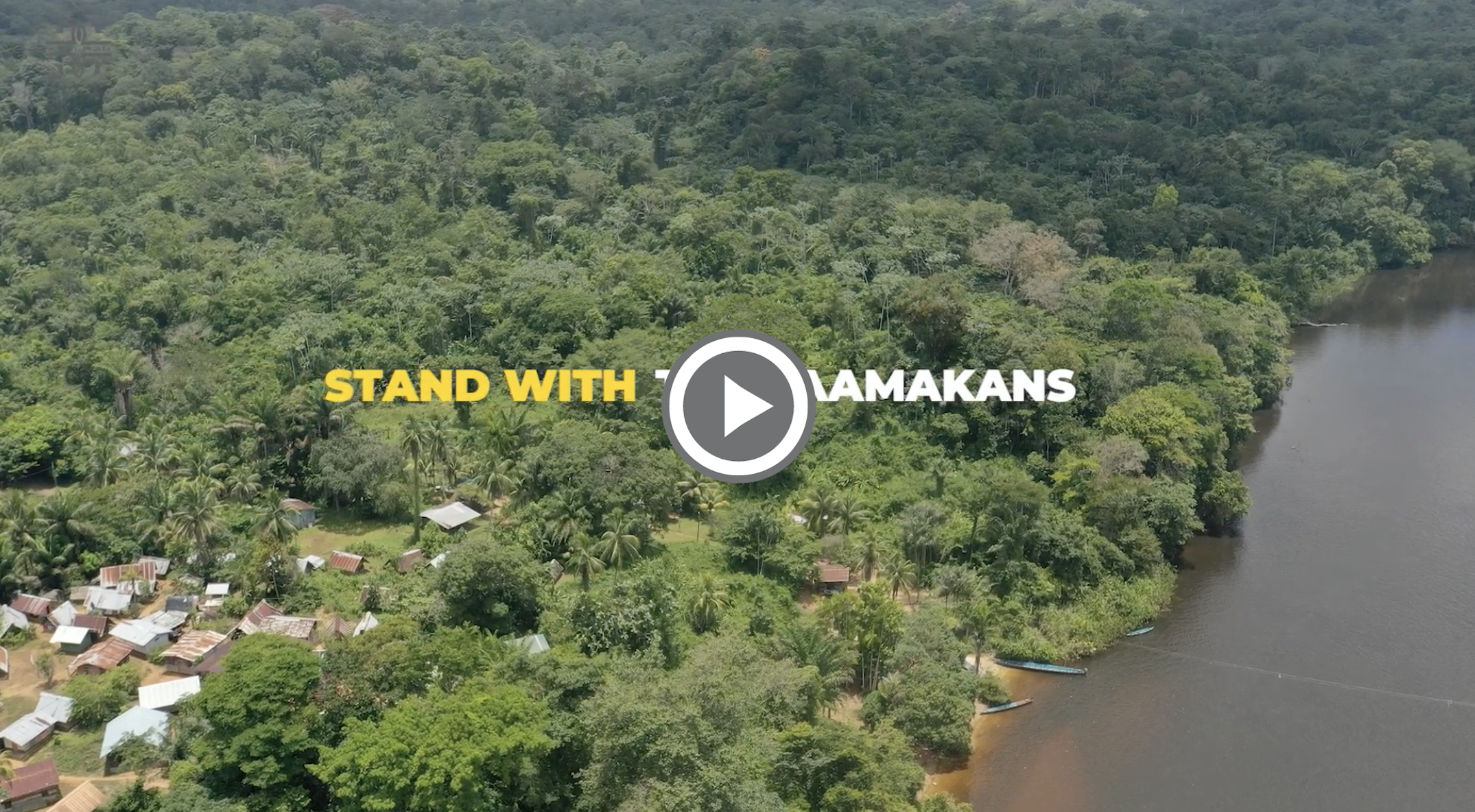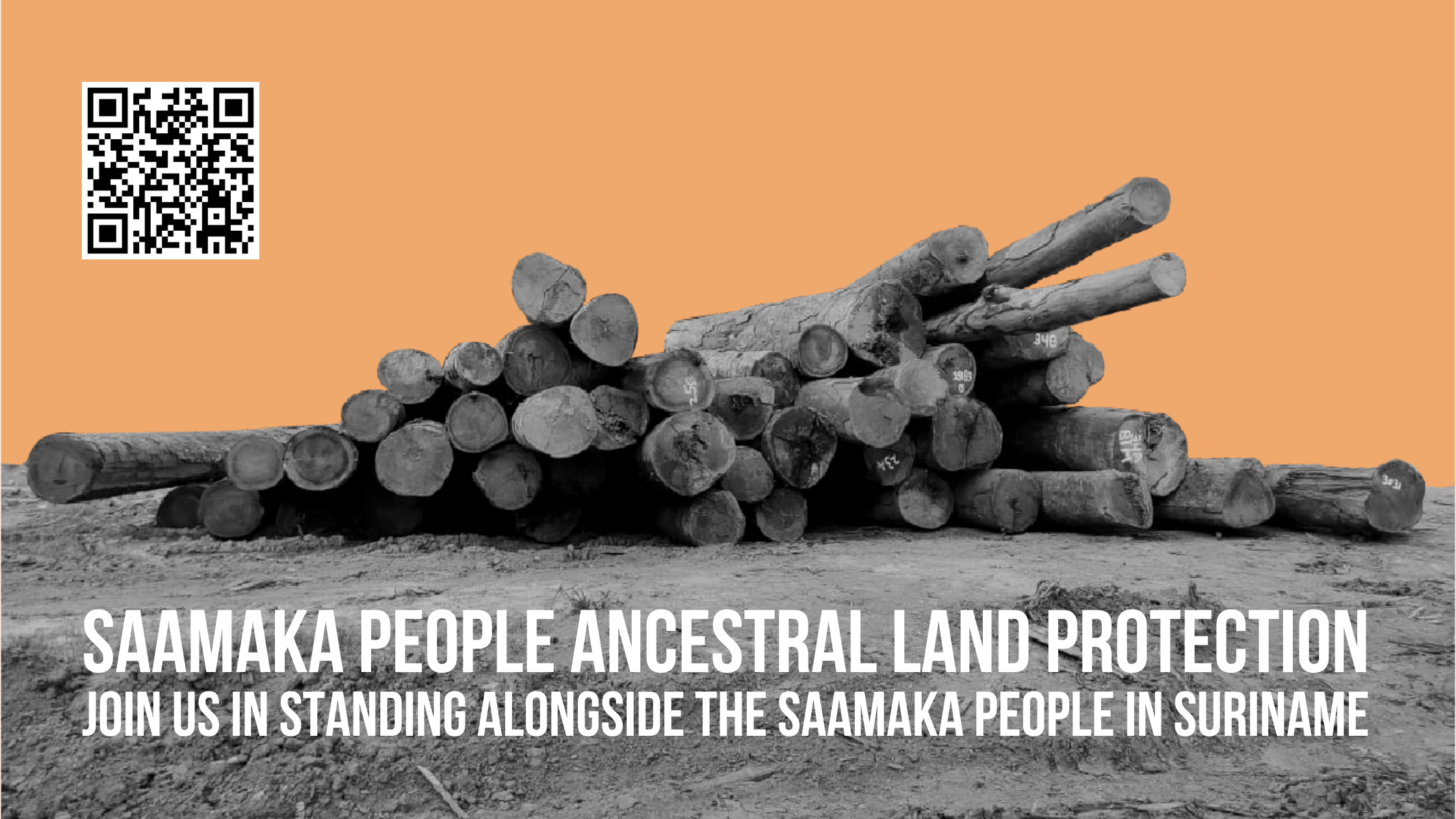
The Saamaka people in Suriname, Caribbean, confront a crucial battle to safeguard their ancestral land. They need support to protect their territory and advocate for the recognition of their rights. STAND WITH THE SAAMAKA PEOPLE and be a part of securing their future.
Context:
Makandi signifies unity
The Saamaka are deeply connected to the forest they have protected for centuries through their cultural practices and traditions. However, the advancement of logging and gold mining in their territories poses a grave threat, endangering their very existence. Their ability to defend the pristine Amazon rainforest they call home and rely on for their livelihoods is diminishing.
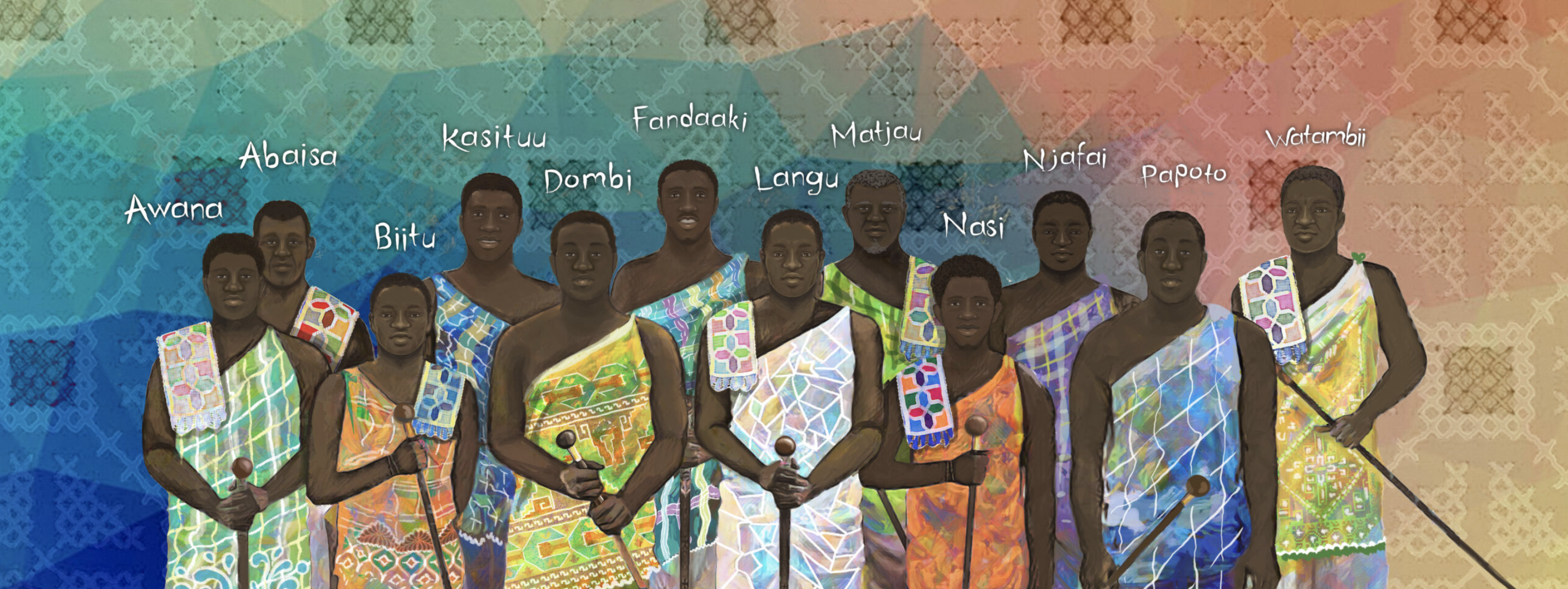
Despite a legally binding judgment from the Interamerican Court of Human Rights in 2007, their collective right to their ancestral land is yet to be nationally recognized and respected. The violation of Saamaka’s ancestral land and human rights continues unabated to this day.
Recognition and respect for ancestral land rights would empower not only the Saamaka tribe but also other tribes and indigenous peoples in Suriname to secure and protect their land against destructive activities. The Saamaka tribe has committed to managing their 1.4 million hectares of the Amazon rainforest in alignment with planetary health principles, fostering harmony with nature.
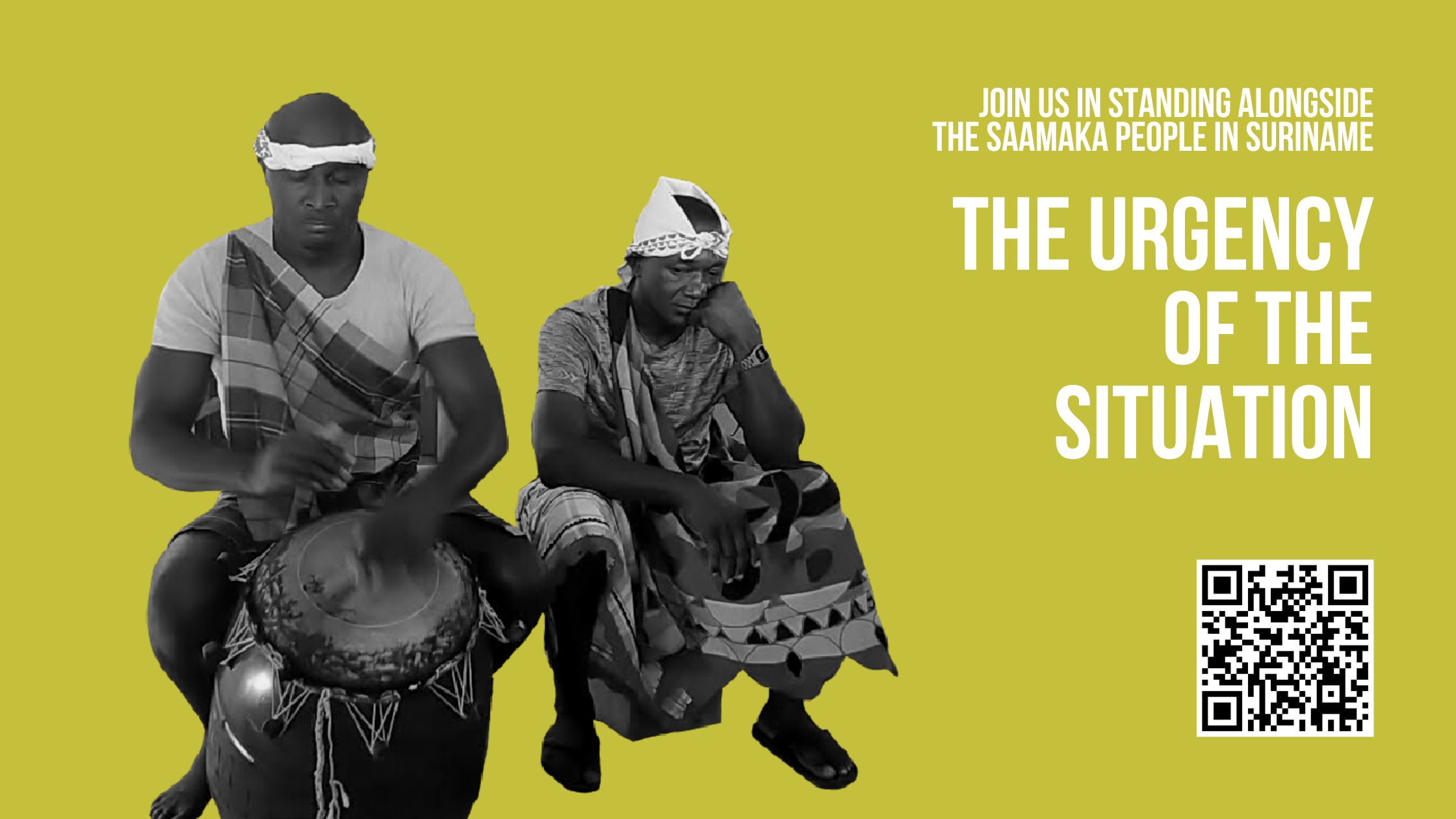
The Saamaka tribe plays a pivotal role in preserving the Suriname Amazon rainforest. As guardians of 1.4 million hectares of Amazon rainforest, they oversee 9% of Suriname’s territory. Suriname stands among the select countries that maintain a carbon-negative status, largely due to the preservation of 93% of its land as untouched Amazon rainforest.
History has shown that indigenous and tribal communities excel in halting deforestation and forest degradation. By entrusting communities like the Saamaka tribe with the responsibility of forest protection, we can avert further loss of the Amazon rainforest, prevent additional greenhouse gas emissions, and resist emerging threats to the intact Amazon rainforest.
Embrace the story of the Saamaka people, stand alongside them, and become a part of their mission to preserve their forest.
*(Please note that ALLIED is not directly supervising or guaranteeing the fundraising campaign. Our intention is solely to spread the word and raise awareness about this cause. Any contributions or actions taken in response to this information are voluntary and at the discretion of individuals).
How can you contribute?
1. Spread Awareness: Help raise awareness about Saamaka’s struggle by sharing the official campaign video across social media platforms, websites, and personal networks. Together, we can amplify their voices. Remember to use the hashtag #StandWithSaamakans.
2. Volunteer and Offer Support: If you have skills or expertise that can contribute to the campaign, we warmly welcome your involvement! Join our team and lend your support in social media, or legal assistance. Contact us at communications@allied-global.org to explore how you can make a meaningful contribution.

1. The Association of Saramaka Authorities (VSG): Established in 1996 with the aim to represent the position of traditional Saamaka leaders and their people from 77 villages in relation to increasing human and land rights violations by the Surinamese state. The VSG is committed to helping bring about sustainable community development, well-being, and prosperity for the Saamaka community and preserving the Saamaka habitat and its ecological diversity. Wanze Eduards and Hugo Jabini were awarded The Goldman Environmental Prize in 2009 for their work on forest and community organization against logging on their traditional lands, ultimately leading to a landmark ruling for indigenous and tribal peoples throughout the Americas to control resource exploitation in their territories.
2. ALLIED: works to contribute to a safe and enabling environment for Indigenous, Land and Environmental Defenders (ILEDs) and empower and foster the agency of these defenders, encouraging multistakeholder action and driving systemic change strategies to address (prevent and respond to) threats against them.
#StandWithSaamakans
